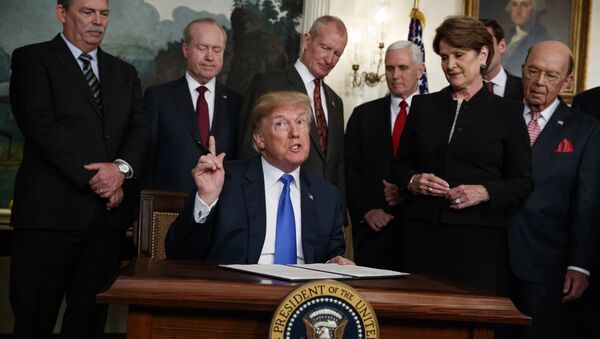If the draft bill becomes law, Congress would have 60 days to approve all future tariffs, as well as those put into place within the past two years, the release explained.
Moreover, new legislation introduced by a group of bipartisan US senators would require the president to get approval from Congress first before imposing any new import tariffs in the interest of national security, Senator Bob Corker said.
"US Senators Bob Corker (R-Tenn.), Heidi Heitkamp (D-N.D.), Pat Toomey (R-Pa.), Mark Warner (D-Va.), Lamar Alexander (R-Tenn.), Brian Schatz (D-Hawaii), Ron Johnson (R-Wis.), Chris Van Hollen (D-Md.), Mike Lee (R-Utah), and Jeff Flake (R-Ariz.) today introduced legislation to require congressional approval of tariffs designated under Section 232 of the Trade Expansion Act of 1962," the release said.
The clause has only rarely been used to impose tariffs previously in US history, such as when former President Jimmy Carter used it to ban Iranian oil in 1979 in response to the Iran hostage crisis.
"Making claims regarding national security to justify what is inherently an economic question not only harms the very people we all want to help and impairs relations with our allies but also could invite our competitors to retaliate," Corker said in the release.
Last week, Trump announced he would remove an exemption on 25 percent tariffs for steel and 10 percent for aluminum from Canada, Mexico, and the European Union due to the national security threat posed by the imports of these metals.




